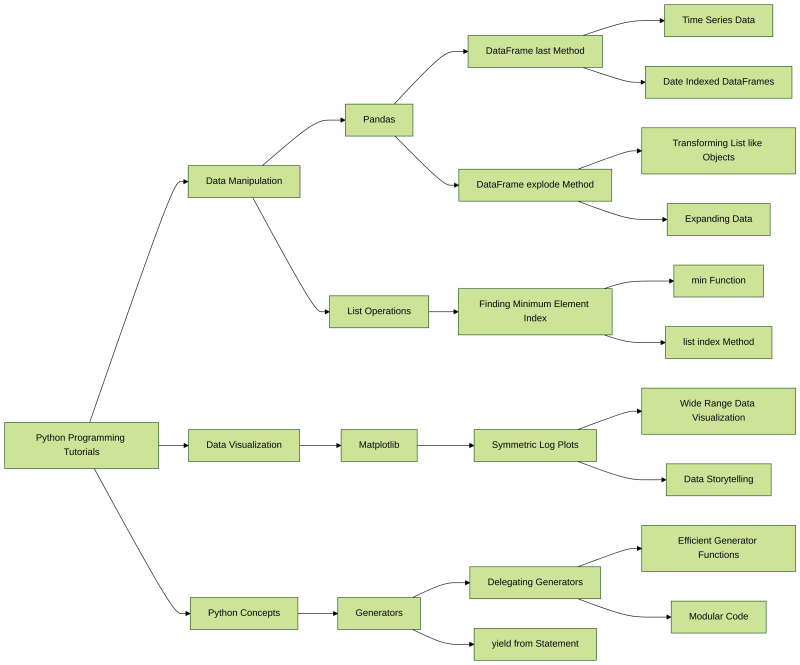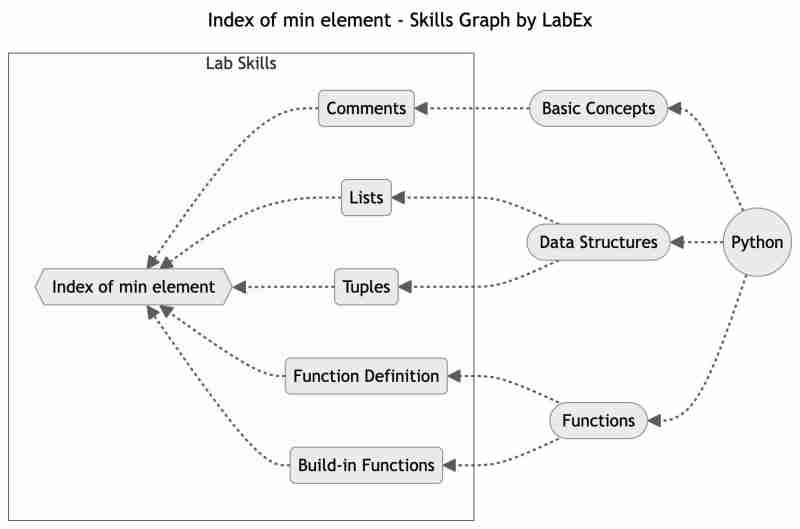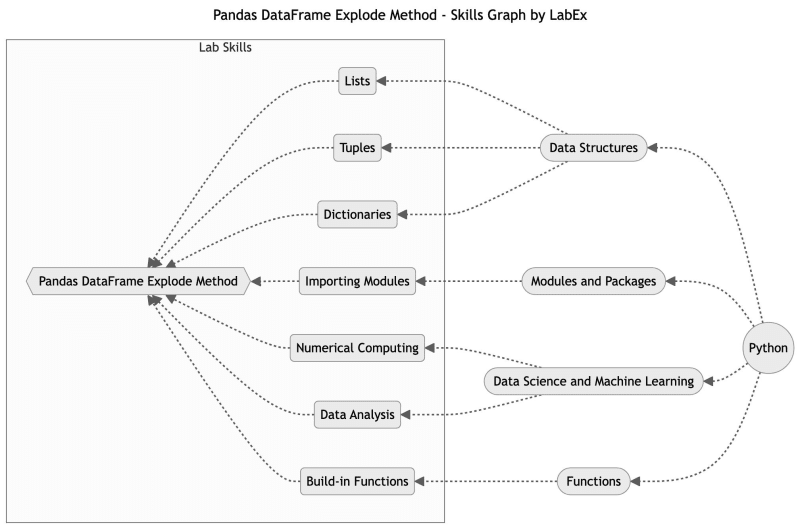 Backend Development
Backend Development
 Python Tutorial
Python Tutorial
 Unleash Your Python Prowess: A Collection of Insightful Programming Tutorials
Unleash Your Python Prowess: A Collection of Insightful Programming Tutorials
Unleash Your Python Prowess: A Collection of Insightful Programming Tutorials
Embark on a journey of Python mastery with this curated collection of programming tutorials from LabEx. ? Whether you're a beginner looking to expand your skills or an experienced developer seeking new techniques, these labs cover a wide range of topics to elevate your coding expertise. From manipulating Pandas DataFrames to creating captivating data visualizations, this article will guide you through a diverse array of practical programming concepts.

1. Pandas DataFrame Last Method: Navigating Time Series Data
Lab URL
Dive into the world of Pandas DataFrames and explore the power of the last() method. This tutorial will teach you how to effortlessly select the last few rows of time series data based on a date offset. Unlock the potential of working with date-indexed DataFrames and learn to handle common challenges with ease. ?
2. Index of Minimum Element: Uncovering the Smallest Value
Lab URL

Discover the secrets of finding the index of the minimum element in a list using the built-in min() function and the list.index() method. This lab will equip you with the knowledge to efficiently locate the smallest value within your data structures, empowering you to make informed decisions and optimize your code. ?
3. Matplotlib Symmetric Log Plots: Visualizing Complex Data
Lab URL
Unleash the power of Matplotlib, the renowned data visualization library in Python. In this tutorial, you'll learn how to create symmetric log plots, a powerful tool for visualizing data with a wide range of values. Elevate your data storytelling skills and unlock new ways to present your findings in a clear and compelling manner. ?
4. Pandas DataFrame Explode Method: Unraveling Nested Data
Lab URL

Explore the versatility of the explode() method in the Pandas library. This lab will guide you through the process of transforming list-like objects into individual rows, replicating index values and returning a DataFrame with the expanded data. Unlock the potential of your data and discover new ways to structure and analyze your information. ?
5. Delegating Generators: Streamlining Python's Yield
Lab URL
Dive into the world of delegating generators and learn how to leverage the yield from statement in Python. This lab will equip you with the knowledge to create more efficient and modular generator functions, empowering you to write cleaner, more maintainable code. Embrace the power of generators and unlock new possibilities in your Python projects. ?
Embark on this captivating journey of programming tutorials and elevate your Python skills to new heights. ? Explore the diverse range of topics, from data manipulation to visualization and beyond, and unlock the full potential of your coding prowess.
Want to Learn More?
- ? Learn the latest Python Skill Trees
- ? Read More Python Tutorials
- ? Join our Discord or tweet us @WeAreLabEx
The above is the detailed content of Unleash Your Python Prowess: A Collection of Insightful Programming Tutorials. For more information, please follow other related articles on the PHP Chinese website!

Hot AI Tools

Undresser.AI Undress
AI-powered app for creating realistic nude photos

AI Clothes Remover
Online AI tool for removing clothes from photos.

Undress AI Tool
Undress images for free

Clothoff.io
AI clothes remover

Video Face Swap
Swap faces in any video effortlessly with our completely free AI face swap tool!

Hot Article

Hot Tools

Notepad++7.3.1
Easy-to-use and free code editor

SublimeText3 Chinese version
Chinese version, very easy to use

Zend Studio 13.0.1
Powerful PHP integrated development environment

Dreamweaver CS6
Visual web development tools

SublimeText3 Mac version
God-level code editing software (SublimeText3)

Hot Topics
 1662
1662
 14
14
 1419
1419
 52
52
 1311
1311
 25
25
 1261
1261
 29
29
 1234
1234
 24
24
 Python vs. C : Applications and Use Cases Compared
Apr 12, 2025 am 12:01 AM
Python vs. C : Applications and Use Cases Compared
Apr 12, 2025 am 12:01 AM
Python is suitable for data science, web development and automation tasks, while C is suitable for system programming, game development and embedded systems. Python is known for its simplicity and powerful ecosystem, while C is known for its high performance and underlying control capabilities.
 Python: Games, GUIs, and More
Apr 13, 2025 am 12:14 AM
Python: Games, GUIs, and More
Apr 13, 2025 am 12:14 AM
Python excels in gaming and GUI development. 1) Game development uses Pygame, providing drawing, audio and other functions, which are suitable for creating 2D games. 2) GUI development can choose Tkinter or PyQt. Tkinter is simple and easy to use, PyQt has rich functions and is suitable for professional development.
 The 2-Hour Python Plan: A Realistic Approach
Apr 11, 2025 am 12:04 AM
The 2-Hour Python Plan: A Realistic Approach
Apr 11, 2025 am 12:04 AM
You can learn basic programming concepts and skills of Python within 2 hours. 1. Learn variables and data types, 2. Master control flow (conditional statements and loops), 3. Understand the definition and use of functions, 4. Quickly get started with Python programming through simple examples and code snippets.
 How Much Python Can You Learn in 2 Hours?
Apr 09, 2025 pm 04:33 PM
How Much Python Can You Learn in 2 Hours?
Apr 09, 2025 pm 04:33 PM
You can learn the basics of Python within two hours. 1. Learn variables and data types, 2. Master control structures such as if statements and loops, 3. Understand the definition and use of functions. These will help you start writing simple Python programs.
 Python vs. C : Learning Curves and Ease of Use
Apr 19, 2025 am 12:20 AM
Python vs. C : Learning Curves and Ease of Use
Apr 19, 2025 am 12:20 AM
Python is easier to learn and use, while C is more powerful but complex. 1. Python syntax is concise and suitable for beginners. Dynamic typing and automatic memory management make it easy to use, but may cause runtime errors. 2.C provides low-level control and advanced features, suitable for high-performance applications, but has a high learning threshold and requires manual memory and type safety management.
 Python and Time: Making the Most of Your Study Time
Apr 14, 2025 am 12:02 AM
Python and Time: Making the Most of Your Study Time
Apr 14, 2025 am 12:02 AM
To maximize the efficiency of learning Python in a limited time, you can use Python's datetime, time, and schedule modules. 1. The datetime module is used to record and plan learning time. 2. The time module helps to set study and rest time. 3. The schedule module automatically arranges weekly learning tasks.
 Python: Exploring Its Primary Applications
Apr 10, 2025 am 09:41 AM
Python: Exploring Its Primary Applications
Apr 10, 2025 am 09:41 AM
Python is widely used in the fields of web development, data science, machine learning, automation and scripting. 1) In web development, Django and Flask frameworks simplify the development process. 2) In the fields of data science and machine learning, NumPy, Pandas, Scikit-learn and TensorFlow libraries provide strong support. 3) In terms of automation and scripting, Python is suitable for tasks such as automated testing and system management.
 Python: Automation, Scripting, and Task Management
Apr 16, 2025 am 12:14 AM
Python: Automation, Scripting, and Task Management
Apr 16, 2025 am 12:14 AM
Python excels in automation, scripting, and task management. 1) Automation: File backup is realized through standard libraries such as os and shutil. 2) Script writing: Use the psutil library to monitor system resources. 3) Task management: Use the schedule library to schedule tasks. Python's ease of use and rich library support makes it the preferred tool in these areas.



